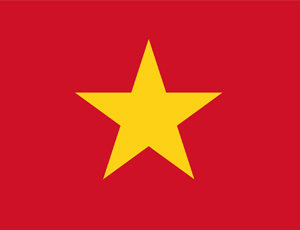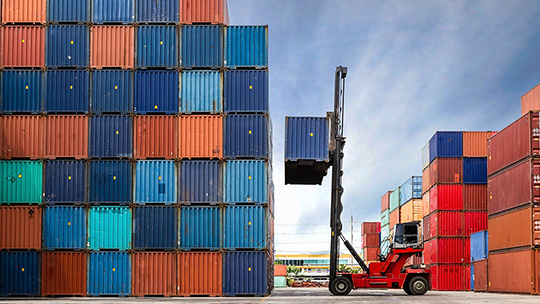Positive Economic Numbers for Vietnam in 2013: Strong Outlook for 2014
 HANOI – 2013 proved to be quite a positive year for the Vietnamese economy. The government has announced that its economic restructuring plans will continue into 2014, and issued a bullish set of economic targets for the new year. Among the country’s biggest successes in 2013 was the fact that inflation was brought under control.
HANOI – 2013 proved to be quite a positive year for the Vietnamese economy. The government has announced that its economic restructuring plans will continue into 2014, and issued a bullish set of economic targets for the new year. Among the country’s biggest successes in 2013 was the fact that inflation was brought under control.
The country’s GDP saw an increase of 5.42 percent in 2013. While not as high as neighboring countries, the news of Vietnam’s GDP growth was met with optimism, especially when the consumer price index (CPI) is taken into account. The CPI is at just 6.04 percent, the lowest rate the country has had in a decade. The CPI number is particularly impressive given that as recently as 2011 the CPI stood at more than 18 percent.
 RELATED: Dezan Shira & Associates’ Pre-Investment, Market Entry Strategy Advisory Services
RELATED: Dezan Shira & Associates’ Pre-Investment, Market Entry Strategy Advisory Services
These positive economic numbers are primarily attributed to the success of the Vietnamese government’s macro-economic policies – in particular its monetary policy.
Doctor Tran Du Lich, a member of the National Financial and Monetary Policy Advisory Council stated that the country’s monetary policy had stopped the “stampeding horse” of inflation. In addition, Dr. Tran credited the monetary policy with two more successes: “The second success was stabilizing the exchange rate between the Vietnamese Dong and foreign currencies while increasing the foreign currency reserves. The third was to cut the interest rate, which has been a difficult task for Vietnam for a long time.”
Vietnam’s banking sector saw a number of improvements, particularly the reduction of its average annual lending rate which dropped to 10 percent, down from the 22 percent it was at two years ago. The reduction in interest rates allowed domestic businesses to strengthen their production and trading, as well as to maintain their inventories.
The banking sector was strengthened by the continuation of economic restructuring efforts. Credit institutions saw a high level of consolidation through mergers or dissolutions. This is part of a plan begun in 2012, and expected to last until 2015, to encourage/force mergers or acquisition of weak banks. The government also completed the equitization of four state-owned commercial banks. Additionally, the Vietnam Asset Management Company (a state owned company created solely to purchase bad debt from existing banks in order to clear their books) purchased more than US$1.6 billion worth of bad debts in 2013.
Recently in 2014, Vietnam announced that it will allow foreign investors to hold a larger stake in domestic financial institutions as a way to speed up the restructuring of the bank system and the cleaning up of the bad debt. In the decree signed by Prime Minister Nguyen Tan Dung, starting February 20th a foreign strategic investor will be allowed to hold a stake of up to 20 percent (up from 15 percent) in a domestic financial institution.
The Vietnamese National Assembly recently approved the targets for the country’s 2014 socio-economic plan. These targets include creating more macro-economic stability, curbing inflation, and achieving a reasonable growth rate.
Specifically the government has stated that it wants to achieve:
- a GDP growth rate of around 5.8 percent;
- export turnover increase of about 10 percent;
- excess of imports over exports at 6 percent;
- CPI increase of 7 percent;
- total investment for social development of around 30 percent of GDP;
- poverty reduction of 1.7-2 percent; and
- 1.6 million new jobs.
In order to achieve these goals the government has stated that among other things it will have a flexible and effective monetary policy and a tight fiscal policy. It will also create favorable conditions for businesses to access capital, and will comprehensively restructure credit organizations. Additionally, the government will speed up the equitization of SOEs; boost non-core divestment; shift from processing and manufacturing to production; deeply integrate into the global value chains. The government has also pledged to ensure social welfare and the improvement of people’s living standards.
Vietnam’s trade surplus is expected to reach US$863 million this year, up from a surplus of US$747 million in 2012. According to the Vietnamese government, the industrial production index will also rise 5.9 percent faster than last year’s expansion of 4.8 percent. Vietnam’s service sector – which makes up 43 percent of the nation’s economy – led the country’s 2013 sectorial growth by expanding 6.56 percent. Close behind was Vietnam’s construction sector, which expanded by 5.43 percent, and the agriculture sector which grew by 2.67 percent.
Dezan Shira & Associates is a specialist foreign direct investment practice, providing corporate establishment, business advisory, tax advisory and compliance, accounting, payroll, due diligence and financial review services to multinationals investing in emerging Asia. Since its establishment in 1992, the firm has grown into one of Asia’s most versatile full-service consultancies with operational offices across China, Hong Kong, India, Singapore and Vietnam as well as liaison offices in Italy and the United States.
For further details or to contact the firm, please email vietnam@dezshira.com, visit www.dezshira.com, or download the company brochure.
You can stay up to date with the latest business and investment trends across Vietnam by subscribing to Asia Briefing’s complimentary update service featuring news, commentary, guides, and multimedia resources.
Related Reading
A Guide to Understanding Vietnam’s VAT
In this issue of Vietnam Briefing, we clarify the entire VAT process by taking you through an introduction as to what VAT is, who and what is liable, and how to pay it properly. We first take you through the basics of VAT in Vietnam before taking you deeper into the topic. Additionally, we provide updates on the new changes to the VAT process and explain how they will impact your business. The magazine is out now and will be temporarily available as a complimentary PDF download on the Asia Briefing Bookstore until the end of April.
Foreign Investors Soon To Be Allowed VND Bank Accounts
Vietnam Exports Rise Thanks to Foreign Firms
- Previous Article The Decline of State-Owned Enterprises in Vietnam
- Next Article Vietnam’s Trade Future Looks Bright with U.S. and Chile as Prime Markets

































